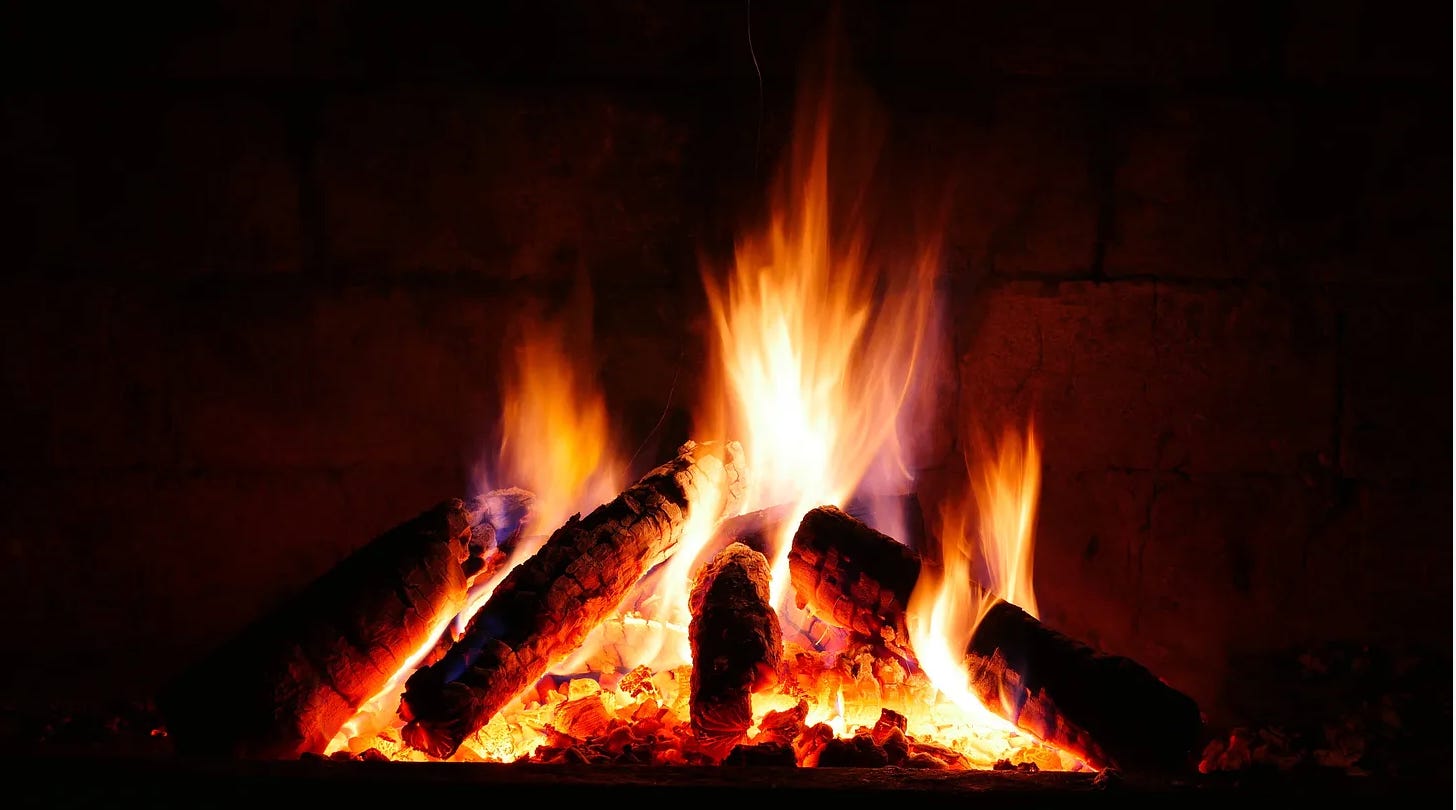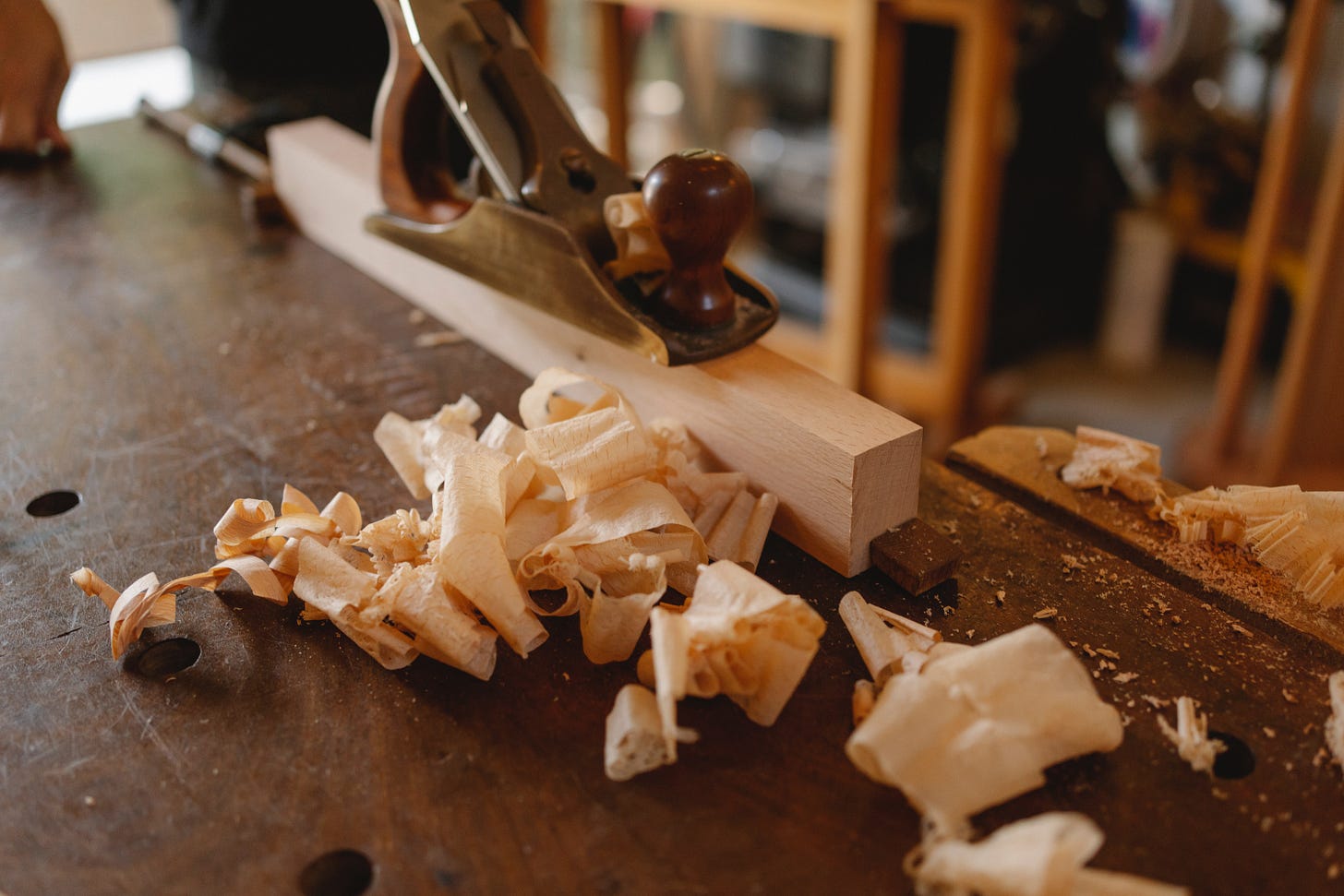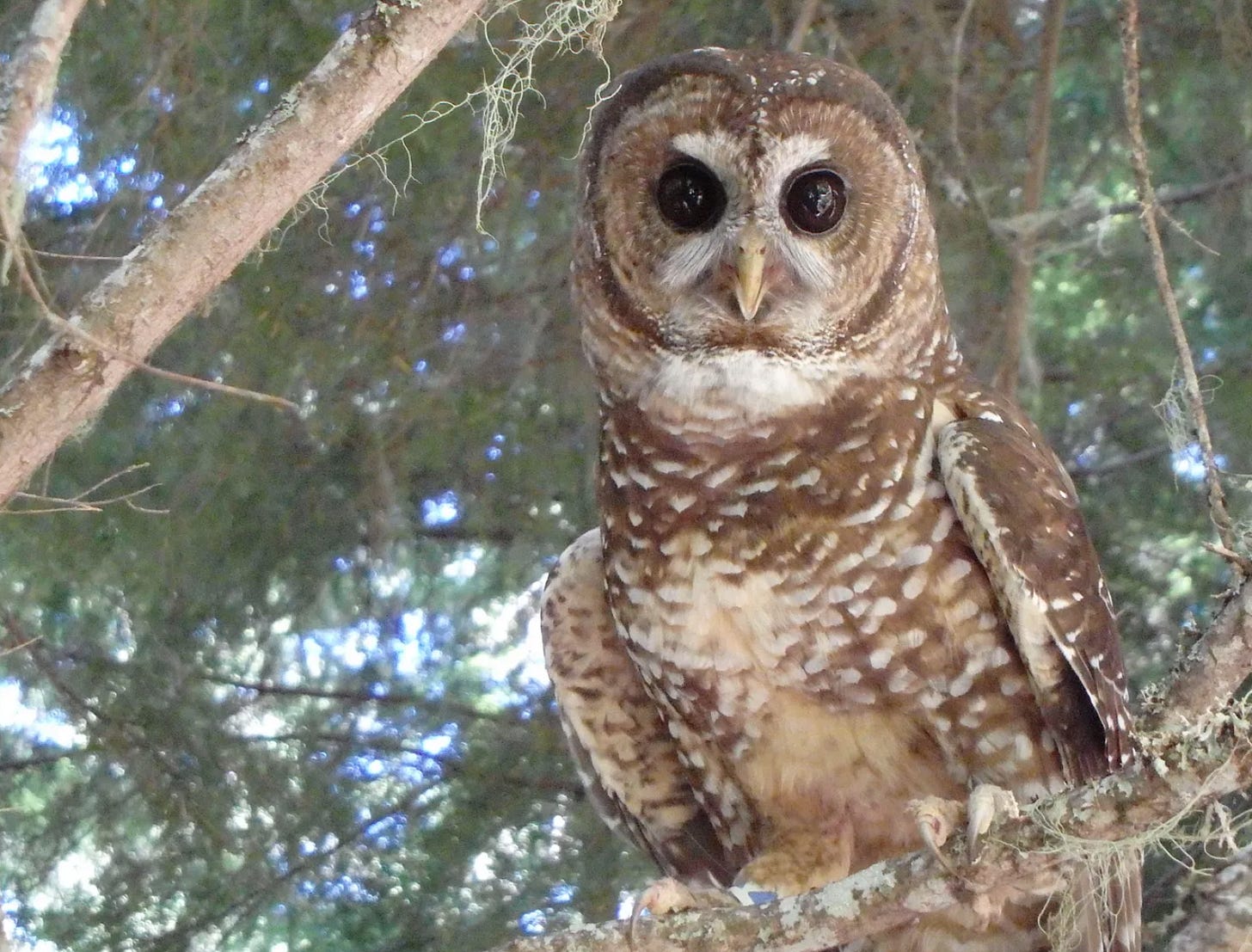CHAPTER 10: Going Extinct
While driving home from Silvercreek to the Armstrong family compound, Jackson said, “Well, there you have it. Another dull day in the life of a logger.”
“Jackson,” said Grace, “I thought I was going to die today.”
He kept his eyes on the road. “I hope you’ve recovered,” he said.
“Sorry I was such a baby. Can you show me where we were today on a map?”
Jackson raised an eyebrow. He’d expected Grace to run back to L.A., but instead she had overcome her fright and was still asking questions. “After dinner,” he said.
They rode in silence. In the mud room, they hung their outerwear and changed out their shoes. In the kitchen, spaghetti sauce roiled gently in a pot on the stove; salad and bread were ready on the counter. Alan Jackson’s “Hard Hat And A Hammer” filled the room.
No, there's nothing wrong with a hard hat and a hammer / Kind of glue it sticks this world together / Hands of steel and cradle of the Promised Land / God bless the working man, the working man / ah, the working man / and woman
Jackson smiled at the lyrics and excused himself to clean up.
Tom opened the kitchen cabinet. “Tom,” said Sara, “let’s use the good dishes, eat in the dining room.” Grace helped set the table while Tom laid newspaper under Billy’s high chair to protect the dining room rug from the inevitable.
“Nice,” said Jackson when he came downstairs, dressed in a navy fisherman’s sweater and a fresh pair of Wranglers. He started a fire and Sara popped the pasta into boiling water.
After a pleasant dinner, dishes stacked in the kitchen, Sara brought out mugs of tea which they sipped in front of the fireplace. Sara tried, with little success, to clean the spaghetti sauce out of Billy’s hair. “Sara,” said Jackson, “I’ll finish up down here while you clean up that baby.”
Sara laughed, nodded, carried the baby upstairs. Tom stood by awkwardly, a mug of tea in his left hand. “I’ll go watch Billy get a bath,” he said.
“Good idea,” said Jackson. He watched his brother’s back as Tom climbed the stairs slowly, moving like an old man.
Grace studied both of them, then went into the kitchen. Jackson heard the water start. The fire crackled and a log fell. Jackson walked over, poked it and set it right.
Jackson walked into the kitchen and popped a Brad Paisley CD in the player then organized leftovers in the fridge, arranged glasses in the dishwasher as the music kept them company.
I've got some big news / The bank finally came through / And I'm holdin' the keys to a brand new Chevrolet / Have you been outside, it sure is a nice night / How about a little test drive / Down by the lake?
There's a place I know about where the dirt road runs out / We can try out the four-wheel drive / Come on now what do you say / Girl, I can hardly wait to get a little mud on the tires
'Cause it's a good night / To be out there soakin' up the moonlight / Stake out a little piece of shore line / I've got the perfect place in mind / It's in the middle of nowhere, only one way to get there / You got to get a little mud on the tires
Grace listened to the lyrics and smiled a little smile. He noticed. “I want to thank you,” she said, handing him a platter. “It was kind of your family to have me here, in your home.”
“On the record?” asked Jackson, drying the platter. “I wouldn’t want to be misquoted.”
Grace smiled and said, “If you hadn’t offered me a room, I wouldn’t be here so no quotes after hours.” She smiled, “Unless you throw me a bombshell like ‘Elvis is alive and living in the basement’, of course!”
He laughed. “OK, good,” he said, putting the platter away. “’Cuz I thought I might regret bringing a reporter into our home.”
Grace turned back to the dishes.
“But,” he added quickly, “you are not what I expected and I don’t mind having you around.”
“Thank you, Jackson,” she said avoiding his eyes and rinsing the sink.
Jackson handed her a clean dishtowel to dry her hands and scanned the room. “This looks pretty good in here,” he said, closing the dishwasher and hanging up the dishtowels. “Let’s go look at some maps.”
<><><><>
The office was off the hallway, past the living room. Jackson opened the door and stopped for a moment to consider the view outside—the stars against the dark sky—before he switched on the light.
An oversized mahogany desk stood in a corner next to a sideboard on which sat a laptop and printer. A couch next to the fireplace had a view of the back of the property. Along the office walls, bookshelves overflowed with texts on law, international trade, forestry, carpentry, machine repair and reports from the Departments of Agriculture, Commerce and Interior. A few shelves were given over to children’s books, a well-worn selection of Rodale’s Mrs. Peanuckle's series, including Tree Alphabet, Bug Alphabet and Hiking Alphabet.
A wall was covered with framed certificates and degrees for Vivian, Steven, Frank, Phillip, Jackson, and Thomas Armstrong and the daughters-in-law: Rebecca, Monica, Molly and Sara. Beyond degrees in forestry, Grace was surprised to see Jackson had a B.A. in American literature. “You’ve been busy,” she said.
“Snow and rain slow you down some,” said Jackson. “We read a lot.”
She moved on to photos of little league and peewee football teams. He watched her smile as she studied them. Women usually love those, he thought with surprise as she moved quickly past the wedding photos. Instead, she studied the intricately carved edgings on the sideboard. “Beautiful,” she said.
“We built this house and most of the furniture over the generations. Wood’s our product,” he said.
“Who carved this?” she asked, running her fingers along the edging.
Memories flooded Jackson’s mind—Tom working late on the lathe, a chisel held expertly, the fine movements of his hands, his concentration, beads of sweat on his brow. Jackson remembered curls of wood gliding like feathers to the barn floor around him as Tom sang “You Don’t Know Me” along with Willie Nelson.
For I never knew the art of making love / Though my heart ached with love for you / Afraid and shy, I let my chance go by / The chance you might have loved me too
You give your hand to me and then you say goodbye / I watch you walk away beside the lucky guy / To never, never know the one who loves you so / No, you don't know me
“Tom did those,” he said, his voice rough. “He is, ah, he was, very talented.” Jackson turned to the big desk. “Dad works here, when he’s home. Besides government affairs, he’s a whiz at spreadsheets, long-term financial projections, secures financing for special projects.” Jackson scowled. “With all the risk we face right now, I don’t think he could put together a long-term cash flow projection to save his life. Life’s a friggin’ crap shoot. OK, you wanted to see some maps.”
Jackson opened the second and third drawers in a wide cabinet, chose several topo maps and spread them on the big desk. “Here’s the mill,” he said, “the house, the flight path we took today to Jackson Valley. Here’s Blue Meadow. Hunger Mountain, Dragonfly...” He couldn’t say the name.
He pointed to areas on the maps. “Spotted owl country. Here and here and there and over here and everywhere. Preservationists sold Congress the notion that spotted owls mainly live in old growth, so to save them we had to lock up the biggest, oldest trees. Not so. Spotted owls like new growth, open meadows, my back yard. Here at the edge of their range, the owls come and go, but laws are designed to close areas the owl might want to be, which is—depending on wind and weather—pretty much anywhere. If owls nest in a tree in my yard, government can stop me from mowing my lawn. After all, I might kill a mouse and the owls need those!” He shook his head.
“The barred and spotted owls are so closely related that they’ve been successfully mating, producing hybrids, sparred owls with strong genetics. Is that extinction, mutation, natural selection or just real life? To stop this, the government’s greatly expanding the killing of barred owls and any hybrid offspring—shooting and poisoning owls with stripes to save owls with spots. It’s madness!”
Jackson laid out another map and circled an area with his forefinger. “Took the lawyers and bureaucrats 22 friggin’ years to set aside 37,000 acres for the murrelet. Every species they list—threatened, endangered or invasive—is an opportunity to sue, more money for the social economy which sells conflict to an ever-more disconnected public.”
Jackson picked up the maps carefully. “Poor birds have no idea the havoc they’re causing! ‘Shoot, shovel and shut up’ is sad but true,” he said, placing the maps back in the cabinet’s drawers.
“Enviros say ‘we have to protect these animals’. I agree. ‘We need to count these animals.’ OK, good luck with that. Count to your heart’s content or until the tax money runs out. The enviros say, ‘We need to take a precautionary approach to management of these animals. Well, all right. But do we need to be so damn precautionary that we lock up millions of acres from common sense management? Hell, fire will take ’em all out first. Us too! Independent loggers and their timber towns are absolutely going extinct out here.”
Jackson headed to the door. “And don’t even get me started on climate change and that CO2 bullshit,” he said, snapping off the light.







